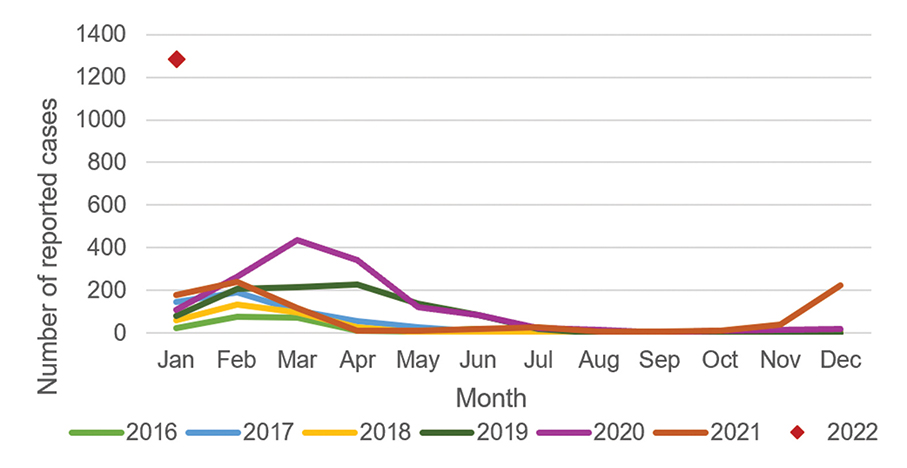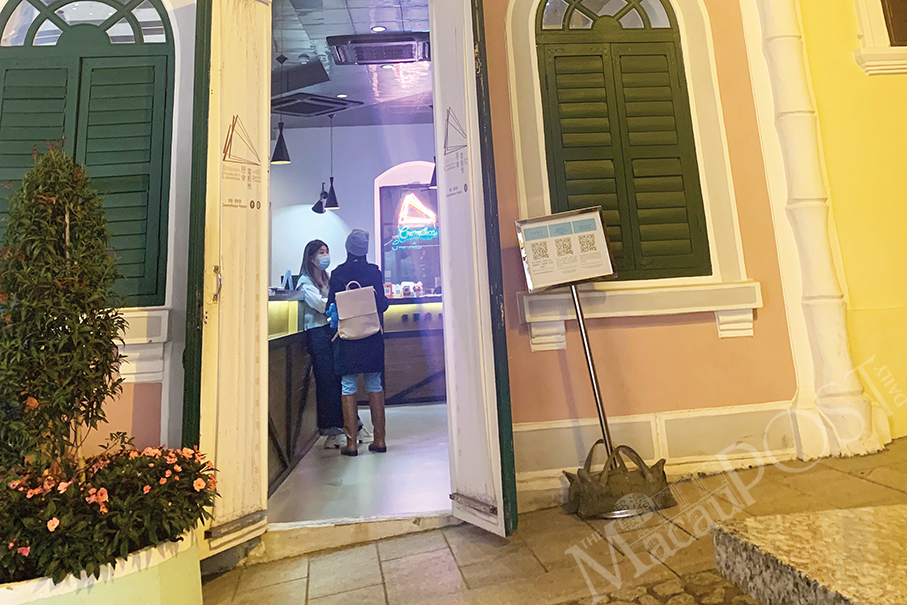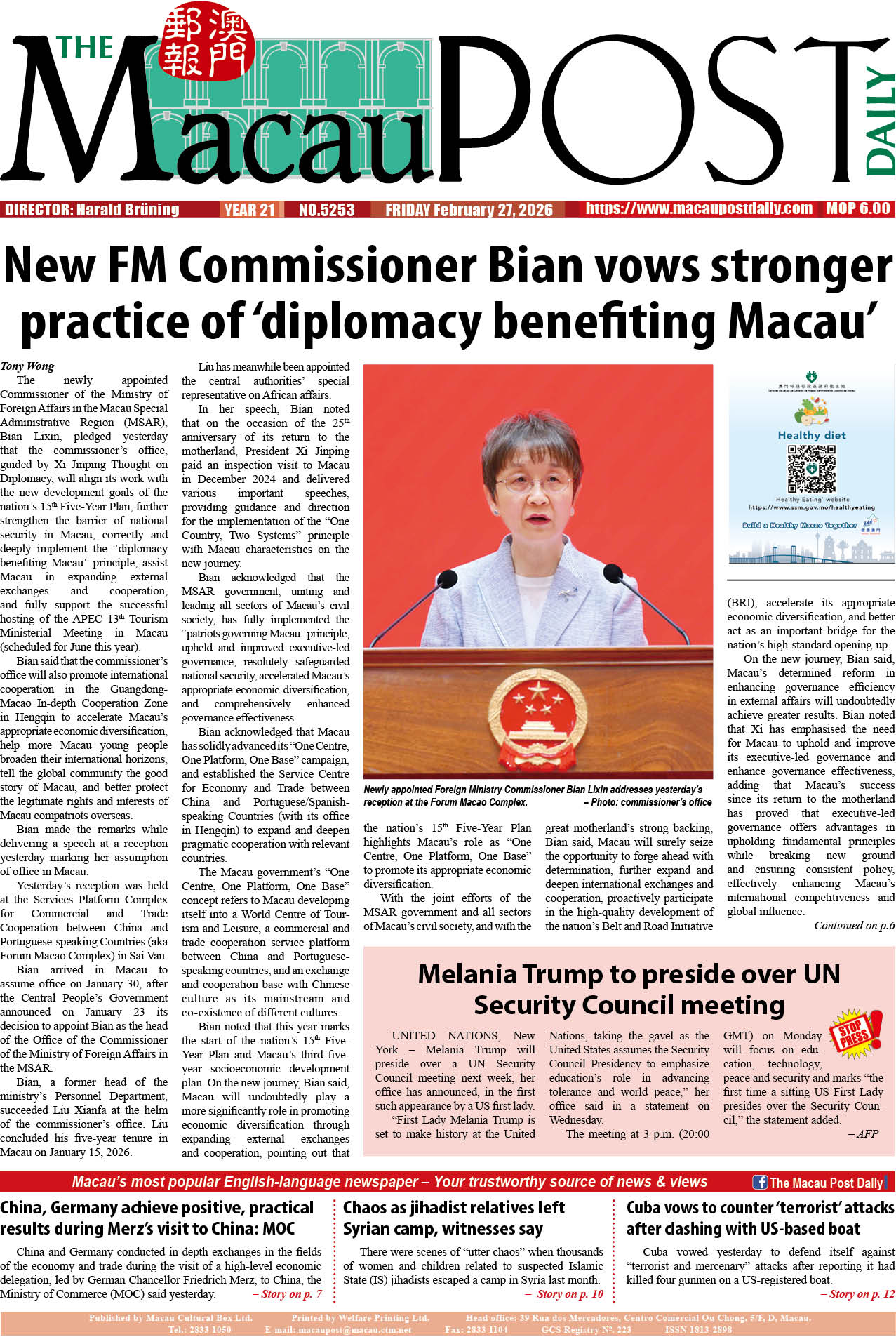The World Health Organisation (WHO) has issued a statement on the outbreak of dengue in East Timor, urging the health authorities in the half-island nation of 1.3 million inhabitants to improve vector surveillance to tackle the disease.
The statement issued by the Geneva-based UN body early this month pointed out that East Timor has reported a surge of dengue cases since late 2021, at unusually high levels compared to previous years.
According to the statement, there were 1,451 reported cases and 10 deaths (CFR of 0.7 percent) in 2020 and 901 cases and 11 deaths (CFR of 1.2 percent) in 2021. In January 2022 alone 1286 cases were reported, of which 790 (61.4 percent) were children under the age of 14 years, 142 were severe dengue cases and 20 fatalities were reported, corresponding to a case fatality ratio (CFR) of 1.6 percent.
The majority of the cases presented to the hospital were diagnosed based on the clinical signs and symptoms. Dili municipality, which includes the capital city of East Timor, reported the highest number of cases (857 cases, or 66.6 percent of the total), followed by Manatuto municipality (92 cases).
The statement underlined that dengue is endemic in East Timor year-round, with peak transmission reported from December to April during the hottest months of the year.
The WHO warned that the ongoing monsoon season may increase mosquito density and the likelihood of further transmission of dengue in the next few months. In previous outbreaks between 2005 and 2012, two co-circulating serotypes, dengue virus 1 (DENV-1) and dengue virus 3 (DENV-3), were reported. Information on circulating serotypes has not been available since 2012, the statement said.
“Although dengue in Timor-Leste [East Timor’s official Portuguese name] is not unexpected, the significant daily increase in the number of dengue cases and the rate of hospitalisation in the current outbreak are unusual”, the WHO said, adding that the number of reported cases between December 1, 2021 to the end of last month is “substantially higher” compared to the same periods in previous years since 2016.
“As dengue is endemic in Timor-Leste, the population may be at risk of secondary infection and possible serious complications if not treated promptly and adequately,” the statement said.
“This outbreak underscores the need for improved vector surveillance, enhanced laboratory capacity for better detection, increased bed capacity in hospitals, sensitised health care providers on case management and improved surveillance of acute febrile illness to better assess disease burden and seasonality patterns,” the statement said, adding that “establishing sentinel sites for systematically testing and subtyping dengue virus will support the detection and response to dengue in affected areas.”
The statement also said that the “WHO does not recommend that any general travel or trade restrictions be applied on Timor-Leste based on the information available for this event.”

Dengue cases reported in Timor-Leste, from January 1, 2016 to January 31, 2022. Source: WHO Country Office in Timor-Leste, WHO Regional Office for South-East Asia








